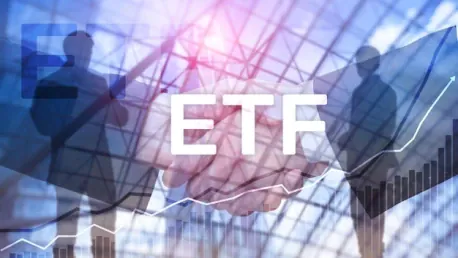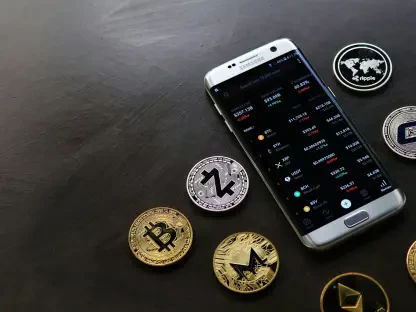The financial landscape of blockchain technology experienced a significant milestone when the Hong Kong Securities and Futures Commission (SFC) approved tokenized money market Exchange-Traded Funds (ETFs). Developed by HashKey and Bosera, these innovative ETFs represent a fusion of blockchain technology with traditional financial products, aiming to create a more secure, transparent, and efficient investment platform. This landmark decision underscores the potential of blockchain to enhance financial transparency and sets a new precedent for global regulatory standards, encouraging other regulatory bodies to consider similar advancements.
Impact on Digital Assets
The approval of blockchain-based financial products could profoundly influence the market outlook for digital assets such as Solana (SOL). Solana has garnered attention for its robust performance and capability to support similar financial innovations. The integration of blockchain technology into traditional investment methodologies is poised to shift perspectives on digital asset investment, potentially affecting SOL’s price trajectory.
In recent developments, Solana’s price fluctuated significantly between overbought and oversold conditions, marked by critical technical movements like golden crosses and death crosses. Initially, Solana’s price ascended to a resistance level of $140.22, subsequently encountering downward pressure and finding support levels at $135.64 and later at $130.61. If the current downward trend continues, it is conceivable that the price could further breach the $130.61 support level. Conversely, a shift in market momentum might result in testing previous support levels acting as resistance.
The SFC’s endorsement of tokenized ETFs represents a substantial milestone that signals growing regulatory acceptance of blockchain technology to reform traditional financial systems. This development can positively impact blockchain-enabled assets like Solana, fostering optimism for the future price potential of SOL. The increasingly seamless integration of blockchain technology in financial sectors stands to revolutionize the investment landscape, enhancing transparency, security, and efficiency of financial products.
Regulatory Impact and Future Prospects
The approval from the Hong Kong SFC carries profound implications for regulatory frameworks globally, encouraging other financial regulators to consider similar initiatives. As blockchain technology gains traction in mainstream finance, its potential to optimize traditional investment platforms becomes increasingly evident. This paradigm shift not only highlights blockchain’s ability to maintain transparency and security but also encourages broader adoption of digital assets in the regulated financial market.
For Solana specifically, the ripple effects of regulatory endorsement can translate into heightened investor confidence and expanded utility of its blockchain infrastructure. With the ability to support sophisticated financial products like tokenized ETFs, Solana is positioned to be a significant player in this evolving market. The synergy of blockchain and finance opens up opportunities for Solana to capitalize on growing demand for secure and efficient investment solutions.
Looking ahead, the continuous advancement of blockchain technology and increasing regulatory acceptance present promising prospects for Solana. As blockchain’s role in finance expands, Solana’s capabilities could serve as a cornerstone for future financial products. The influence of Hong Kong SFC’s approval might drive innovation, prompting other jurisdictions to explore similar regulatory frameworks, further solidifying Solana’s position in the financial technology sector.
Conclusion: Navigating the Future
The financial landscape of blockchain technology reached a notable milestone when the Hong Kong Securities and Futures Commission (SFC) granted approval for tokenized money market Exchange-Traded Funds (ETFs). These innovative financial products, created by HashKey and Bosera, represent a blend of blockchain technology with traditional financial instruments. They are designed to offer a more secure, transparent, and efficient investment platform. This groundbreaking decision highlights blockchain’s potential to significantly enhance financial transparency and efficiency, while setting a new benchmark for global regulatory standards. This move by the SFC not only illustrates the growing acceptance of blockchain technology in mainstream finance but also serves as a motivational precedent for other regulatory authorities around the world. Encouraged by this development, other regulatory bodies may begin to explore similar initiatives, advancing the integration of blockchain into the global financial system.









